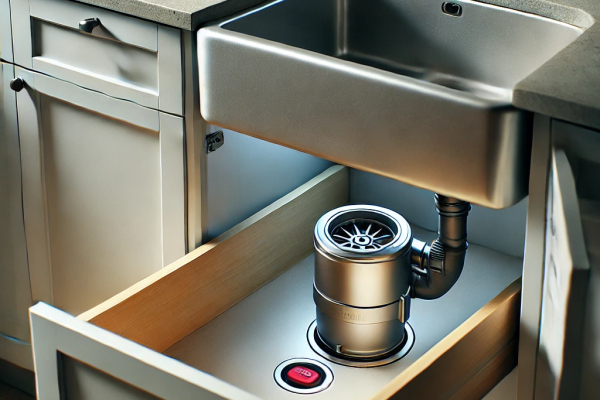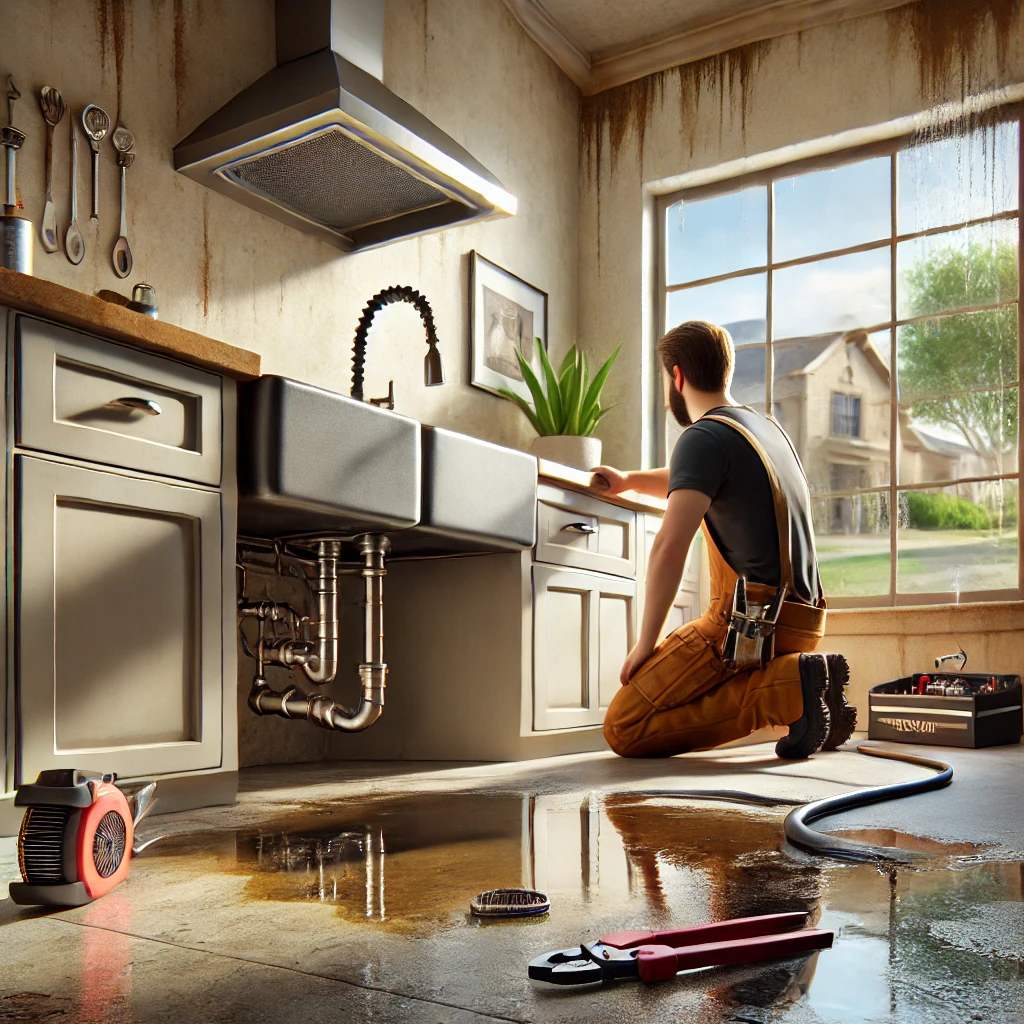
One Press – and Your Garbage Disposal Is Up and Running Again: Safe Reset Secrets from a Professional Plumber
Introduction: When Every Second Counts
Imagine this: It’s a scorching day, and you live right in the heart of Texas, where every family gathering is guaranteed to involve a whole lot of food. You’ve just finished preparing your famous Texas barbecue for friends, and suddenly your garbage disposal falls silent at the worst possible time. Food scraps won’t go down, water is backing up, time is running out, and your kitchen sink is practically begging for help. Sound familiar? If so, you’ve probably found yourself glancing at instructions on how to reset a disposal at least once. And if not—now’s the perfect time to learn how you can bring your unit back to life with just one push of a button, keeping everyone calm and preserving the harmony of your household.
What a Garbage Disposal Is and Why You Need One
A garbage disposal is a compact device located under your kitchen sink that “digests” food scraps. It can effectively grind peels, leftover fruits and vegetables, meat trimmings, and much more, breaking them down into small enough particles to wash down the drain without risking clogs. In a home—especially if you love experimenting in the kitchen (which is hardly uncommon in Texas)—a garbage disposal takes a lot of everyday hassles off your plate. But even the most reliable devices can fail once in a while.
Why Your Disposal Might Refuse to Work
One day, you flip the switch, and instead of the usual humming sound, you hear suspicious silence. Most likely, the safety mechanism has been triggered. This can happen for several reasons:
- Short Circuit or Overload: Large bones or hard objects inside the disposal can cause this.
- Clogs from Tough Food Scraps: Items that are difficult to break down quickly can jam the unit.
- Wear and Tear or Motor Overheating: Particularly common in Texas, where high volumes of waste often result from frequent cooking.
First Things First—Make It Safe
Before touching any buttons, levers, or tools, always turn off the power! Don’t forget to switch off the disposal and, if necessary, cut power at the circuit breaker. Never reach into the disposal chamber with your hand, even if the motor is off. If you’re using gloves or long tongs, do so with extreme caution. When electricity and sharp cutting parts are involved, keeping your hands (and nerves) intact is top priority.
The Magic Red Button: Where to Find It
On the side or bottom of the disposal, you’ll typically find a small reset button—often red. Its purpose is to protect the motor from overload. When the device “senses” it can’t handle a particular batch of waste or when a truly unsuitable object slips inside, the lockout mechanism is triggered. This prevents the motor from burning out as it tries to grind something immovable. If your disposal makes no sound at all when turned on, chances are it’s time to press that reset button.
How to Press the Button Correctly and What to Do Next
- Confirm the disposal is without power.
- Locate the reset button and press it for one to two seconds.
- Turn the power back on, give the device a moment, and try switching it on again.
If the motor hums back to life, you’ve solved the issue. But if the overload happened due to a stuck object, make sure to remove it first (with the power off).
What If the Button Doesn’t Help
Sometimes a reset isn’t enough. In such cases:
- Inspect for Foreign Objects: Use tongs or pliers to carefully remove any stuck bones or food pieces.
- Repeat the Reset Procedure: If the unit remains unresponsive or noisy, you might have a damaged motor or blades.
In these situations, calling a professional is often the safest and most cost-effective option.
Tips for Texans: Avoiding Overloads
The hot climate and the abundance of traditional dishes—often prepared in large batches—put extra strain on a garbage disposal. Here’s how to extend its life:
- Feed waste gradually and always use cold water when the disposal is running.
- Grind tougher items like meat remnants, bones, or fibrous vegetables (e.g., corn husks) in stages.
More Prevention and Maintenance Strategies
- Regular Cleaning: Flush the disposal with cold water and add citrus peels or lemon juice to eliminate odors.
- Smart Loading: Avoid overloading the disposal with large batches of scraps.
- Keep Dangerous Items Out: Never attempt to grind metal parts or oversized bones.
- Periodic Inspections: Address unusual noises, stronger vibrations, or burning smells promptly.
Why Calling a Pro Can Sometimes Be the Best Move
While DIY repairs are tempting, it’s crucial to know your limits. If your disposal remains silent or shows signs of significant damage (e.g., smoke, sparks, or burning smells), professional plumbers can:
- Replace cords or fix electrical circuits.
- Repair or install a new motor efficiently.
Prompt expert intervention often saves time, money, and stress.
Alternatives to a Garbage Disposal: Should You Consider Them?
Although disposals are convenient, alternatives like composting are gaining popularity. In Texas, outdoor composting can turn vegetable scraps into excellent fertilizer. However, avoid composting meats, fats, or bones to prevent pests. A disposal remains a kitchen staple for many, but combining methods can be environmentally friendly.
Why a Thoughtful Approach to Waste Disposal Matters
From an environmental perspective, garbage disposals reduce landfill waste by processing organic materials. However, they work best when paired with other strategies:
- Reduce food waste.
- Recycle where possible.
- Use disposals responsibly.
This not only saves money but also helps protect the environment.
Key Takeaway: How One Button Press Can Save the Day
When the sink overflows with scraps and guests are at the door, don’t panic. In most cases, a quick reset restores order. If it doesn’t, call a professional plumber. To avoid future issues, practice proper maintenance and be mindful of your disposal’s limits. In Texas, where hospitality and cuisine are celebrated, keeping your kitchen running smoothly ensures every gathering is stress-free and enjoyable.
Conclusion: A Brief Reminder from a Professional Plumber
- Safety First: Always cut the power before working on the unit.
- The Reset Button Is Your Best Friend: Use it to address common issues.
- Regular Maintenance Pays Off: Keep your disposal clean and avoid overloading it.
- Don’t Hesitate to Call the Pros: Strange sounds or smells warrant expert help.
- Consider Climate and Cuisine: The Texas heat and big meals mean extra vigilance.
A well-maintained garbage disposal makes life easier, whether it’s a family barbecue or a weekday dinner. Use these tips and share them with friends, ensuring that every Texas kitchen stays ready for action.






